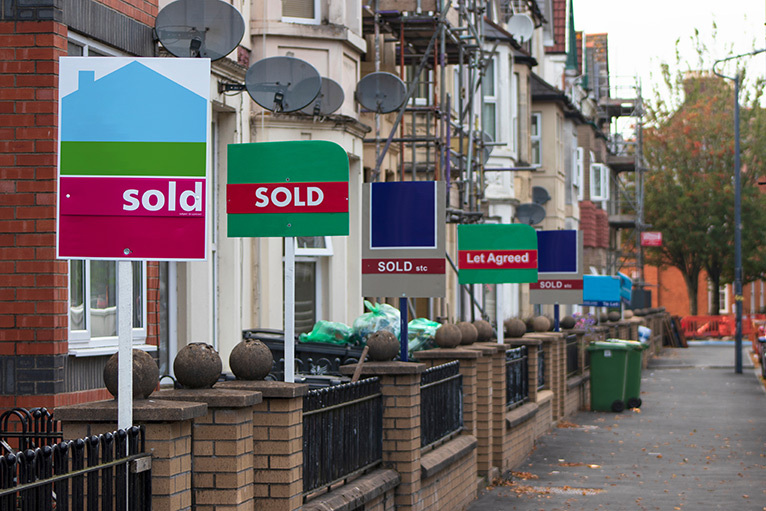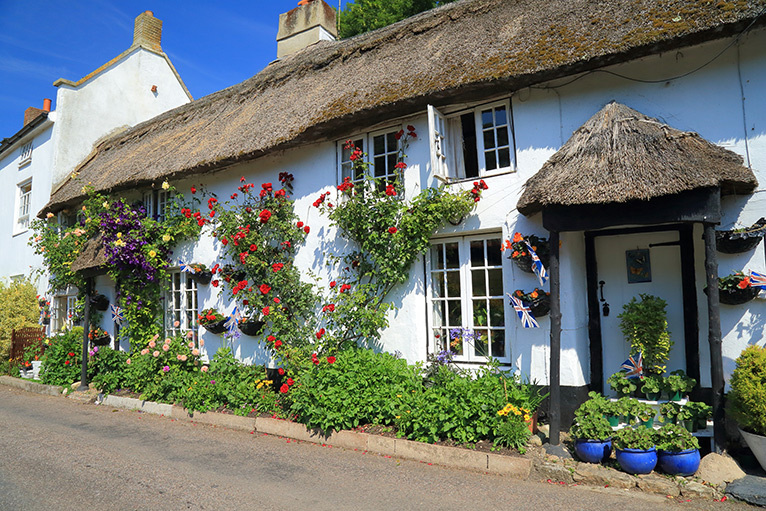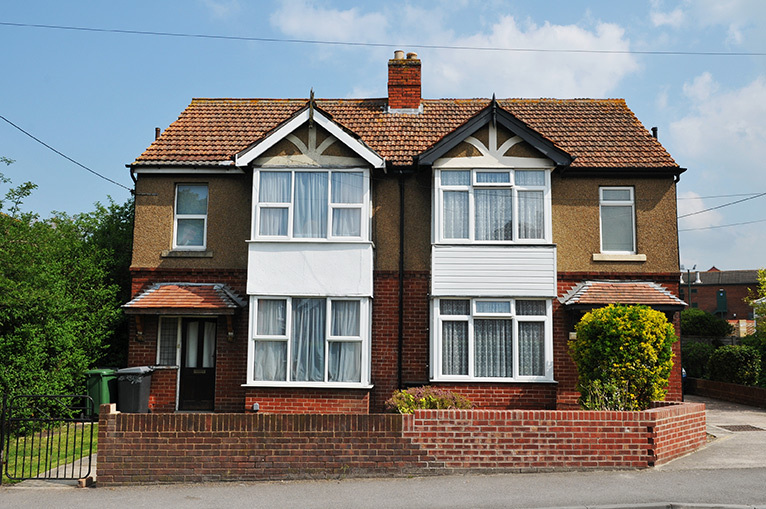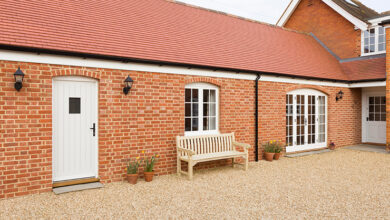House prices are rising across the UK
It might be tricky to believe, but across the UK right now, new records are being set when it comes to house buying and selling. The homes sales pipeline is 50% bigger than this time last year, according to Zoopla’s House Price Index – leading plenty of us to take the leap and move house during the COVID-19 pandemic. And with the recently extended stamp duty holiday in place, there’s no better time than now to buy your next home.
House prices: How much are they going for?

Nationwide’s House Price Index has found that annual house price growth is at a five-year high of 5.8%. Plus, the average property sale price was £227,826 in October 2020. The report also predicts that the housing market will continue to be positive in the short term, thanks to people reassessing their housing needs as result of COVID-19.
Houses are being sold quicker than ever, too. Mortgages are being approved left, right and centre, having reached their highest level since 2007 in September 2020. Plus, October saw the highest number of house sales ever agreed in a month, according to Rightmove.
Country vs city house prices

Working from home is becoming a long-term reality for office workers throughout the UK. Those of us that can afford to have been moving out of London and other major cities into larger houses in rural locations, which has contributed towards the boom in house prices and sales.
From cottages to farmhouses, and even manor houses for some, a countryside property with more space and access to greenery is in high demand amongst thousands of newly remote workers. This demand has driven country house prices to a four-year high. Offers are being accepted at an exceptional rate, too. Outside of London, the number of offers accepted has reached an all-time record.
The boom in house sales

At the moment, it takes about 50 days to sell your home, which is the shortest amount of time ever seen. For the first time ever, estate agents have more properties marked as “sold” than those marked “for sale”.
House prices after Brexit
This house price trend is expected to last until the end of 2020. Consumer confidence is high too. One third of people say that now is good time to buy a property, up from 25% in June (according to the Building Societies Association).

Moving forward, economists and housing advisors aren’t sure that the housing market will remain so positive. Nationwide’s Chief Economist predicts that the market will slow down, especially when the stamp duty holiday finishes. Plus, the experts think that Brexit might have a negative effect on house values due to reduced demand and lower consumer confidence.
How the stamp duty cut can help you
Governments in England, Northern Ireland, Scotland and Wales, have cut stamp duty from 8th July to 30th September 2021. On average, this has helped people save £4,500 when it comes to buying a residential property. Whether you’re taking your first step onto the property ladder or simply looking to move up it, approximately 9 out of 10 people won’t pay any stamp duty at all on their new home.

This limited-time offer makes buying a house all the more attractive, especially when you consider all the alternative ways to spend the money you’ve saved. Government research has found that 33% of homeowners are planning to spend their savings from the stamp duty holiday on home improvements and renovations. It’s the perfect opportunity to create a great place to live, work and play in whilst coronavirus restrictions are still in place.
The increase in house selling activity is predicted to protect hundreds of thousands of jobs too. Tradespeople, estate agents and cleaning firms are among those that will benefit. With home services set to be the engine of the UK’s economic recovery during the coronavirus pandemic, the current boom in house sales is helping small businesses, and the UK as a whole, to flourish.
If you need help finding a reliable removal company or a tradesperson to help with improvements in your current home, find a tradesperson now.




